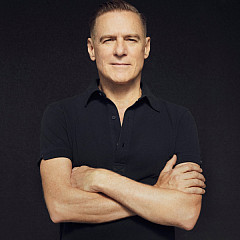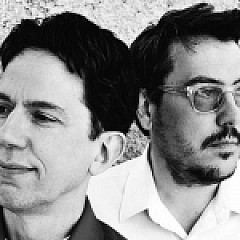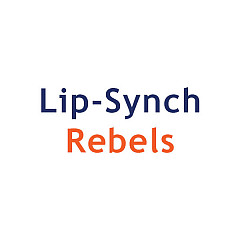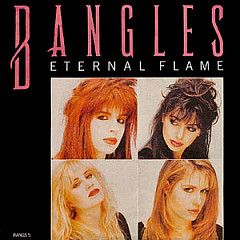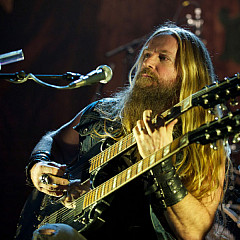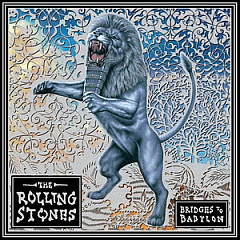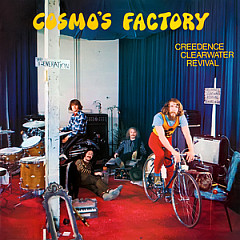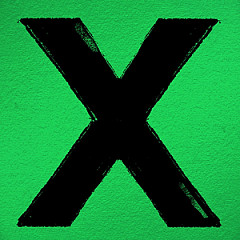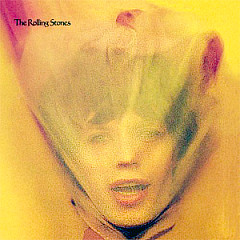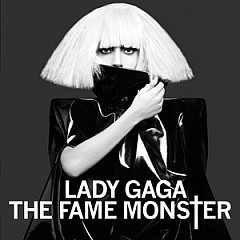 Ann Hampton Callaway is one of the most popular acts on the jazz and cabaret circuit. A student of the Great American Song, she is also a prolific songwriter whose works have been sung by Liza Minnelli, Patti LuPone, Carole King and many others. Her work spans from the theme song of TV's The Nanny to a prominent love song she wrote for Barbra Streisand, "I've Dreamed of You." She is also the only composer allowed by Cole Porter's Estate to set music to his posthumously discovered lyric, "I Gaze in Your Eyes."
Ann Hampton Callaway is one of the most popular acts on the jazz and cabaret circuit. A student of the Great American Song, she is also a prolific songwriter whose works have been sung by Liza Minnelli, Patti LuPone, Carole King and many others. Her work spans from the theme song of TV's The Nanny to a prominent love song she wrote for Barbra Streisand, "I've Dreamed of You." She is also the only composer allowed by Cole Porter's Estate to set music to his posthumously discovered lyric, "I Gaze in Your Eyes."A proponent of trying to write a song or poem each day, Callaway also has a surprising way of coming up with songs, sometimes using the tools of an improvisational comic.
Speaking from a stop on her annual Jazz Cruise, she talked about this unique skill that leads to finished pieces, and other songs that take 150 rewrites.
I have developed the unique ability to do this. I do it with orchestras and in fact I think I'll do a whole night of it on the jazz cruise, which will be the first time I've ever done that. But it's a part of my brain that functions well and the audience gets a kick out of it, so it will be a lot of fun.
It's never the same thing. I never know what the melody is going to be or the changes or lyrics. I try to let the words come first; I try to start a storyline as much as possible and get a foot going and get the audience singing along. It's fascinating. And I learn a bit about my songwriting as well when I do this.
Some of the best songs that I've written have come out of improvisation. I actually had someone commission me to write a song based on an improvisation I'd done a year before. I remembered some of the message of that song, and I remembered part of the melody and I was able to write a song close to what I'd done a year before.
Songfacts: How did you come to writing "I've Dreamed of You" for Barbra Streisand?
Callaway: She fell in love with the melody by Rolf Lovland, a great composer from Norway, so she asked me to write the lyrics. The original title was "Heartstrings," so I wrote a lyric to "Heartstrings" and she thought it was too literal. She said, "You don't have to keep that title."
And I was having a lot of frustration writing a lyric with a very simple melody. It's harder to write lyrics to a simple melody than other types of melodies, so finally I decided: I knew she was getting married that year, so I would write a wedding song.
What I didn't know was that she was getting married three days later. I wrote this song just in the nick of the time and she got the song three hours before she was getting married and sang it at her wedding reception and recorded it on A Love Like Ours. It's actually on six of her CDs and earned me my second platinum award, which was a big honor.
Songfacts: That's some hair-raising timing.
Callaway: That's the way my luck usually happens. I'll write a song that's perfect for someone but it will be too late or it will be the wrong time. So much of my life has been weird luck, so that's an example of great luck.
For instance, the first song I wrote for her, "At the Same Time," I wrote for her on August 16, 1987. I knew it was her song. Singers would ask me to record it and I'd say, "No, I'm saving this for Barbra." Liza Minnelli wanted to record it, all these people. And I said no. Finally when did Barbra Streisand record that? August 16, 1997 – 10 years to the date. That's a long time to wait for a dream to come true. But it was worth it.
Songfacts: Was it difficult to get the song to her?
Callaway: I didn't know anyone who knew her. I had no reason to think she would record it. I just knew that she should record it.
How we did it, my dear friend Amanda McBroom, who wrote "The Rose" and so many wonderful songs, was having a meeting with Barbra's producer, her A&R guy, and mentioned the song. He said, "Oh, I'd love to hear it."
After he heard it, he said, "This is beautiful, but would you be willing to do rewrites?" I said I would be willing to do whatever it takes. And I think it was 150 rewrites later, she said, "OK, I think this is perfect. I think I'm ready to do it." It was just a thrill to have that message out in the world in her voice. I knew in my guts never to give up on that dream.
Songfacts: Was it really 150 rewrites?
Callaway: It was a ton of rewrites. What I really enjoyed was, at one point I said to our liaison, I would love to speak to Barbra. So she got on the phone with me and I was a little intimidated to speak with her, but I said, "Barbra, what do you want me to do here?" She said [adding a Streisand impersonation], "I want it to be simple but profound."
What does that mean? "I want people to understand exactly what you mean the first time you hear a song, and then the second time and third time, every time after that, to have new meanings unfold." As it turns out, that simple guidance has been something I think of every time I write a song now. It's been a wonderful filter for everything I try to do.
Songfacts: How do you approach writing songs?
Callaway: I usually write something every day. Two years ago was the first time my New Year's Resolution was to write a poem or part of a song each day. Last year I took a year off, because that's a lot to ask of myself. But this year I've been writing a poem every day. I think it's helpful no matter how busy I am just to take time for creative ideas to come out.
A lot of times I'll write songs on airplanes because there's nothing else to do - there's no Internet, there's no people trying to bother me. I'm alone with my thoughts and I've had some very lovely moments of writing. Of course, I can't wait to get to a piano when I get off the plane to try out the song.
But I think when you're a creative person and you're traveling, you're seeing a whole lot of interesting cultures, people and situations. And being the daughter of a journalist, my dad [the late Chicago broadcaster John Callaway] was a tremendous role model to me, being such a serious journalist. It always makes me want to feel I need to tell a story or find out where the story was wherever I go, to tell someone's story.
So I'll overhear conversations, I'll write down notes in my notebook or in my iPhone or whatever, and I'll sing into my iPhone and record any ideas I have. Part of the challenge is having enough time to finish songs and demo songs and do something with the songs. I have a huge amount of songs that have not been heard. One of these days my schedule will calm down and I'll have time to work on that.
Songfacts: Your last album was a collaboration with your sister Liz Callaway about music in the '60s, Boom!
 Callaway: We had an interesting time looking at that period. Liz has done more of those songs in her recordings and her shows than I had, so we wanted to put a show together that would really show our differences: To show that I liked the moody singer/songwriters and she loved the fun pop songs. We came together on people like Carole King and Motown and Stevie Wonder, so it was really wonderful to go back and revisit these songs.
Callaway: We had an interesting time looking at that period. Liz has done more of those songs in her recordings and her shows than I had, so we wanted to put a show together that would really show our differences: To show that I liked the moody singer/songwriters and she loved the fun pop songs. We came together on people like Carole King and Motown and Stevie Wonder, so it was really wonderful to go back and revisit these songs.And of course, we didn't just want to do covers of them. So for instance we did "Blowin' in the Wind" as in a gospel version, and it was Pete Seeger, who we just lost, who found out that Bob Dylan wrote "Blowin' in the Wind" based on a Negro spiritual from the 1800s. So when I found that out, it influenced how I did the song.
I tried to do new versions of these songs and breathe new life into them. Audiences seem to relate so much. We do a medley "Back Seat of the Car," of songs we would sing to annoy our parents by singing Top 40 hits. It's fun to relive those days and some of the innocence of those times. And certainly our audiences love going back through memory lane, and experiencing a very important part of our lives.
Songfacts: Would you consider the songs of the 1960s part of the Great American Songbook?
Callaway: I think there's a part two of the Great American Songbook. For instance, I do believe that some of the writing is pretty wonderful. Stevie Wonder has written some great songs that I think are right up there.
Not all the songs. Some of the songs we sing are silly. But "Blowin' in the Wind" is a very profound song. It saved people's lives. It's changed people's lives. It's a different part of the American Songbook. But it's part of the American identity, so I think as I'm exploring these ideas I'm going to want to do a tribute to the second part of the Great American Songbook and celebrate the quality of writing in the singer songwriters in the latter half of the 20th century and in this century.
Songfacts: Why is it so hard for new compositions by these kinds of songwriters to get on air, especially with all the singing competitions on TV that need songs?
Callaway: I think because corporations give the money to the sponsors, the sponsors want guaranteed hits, and guaranteed success and guaranteed viewers. They don't always take the risk of having new songs. Music is very quick and evolving in terms of how it's being heard and experienced. For instance, are people going to listen to CDs anymore? The intellectual value of songs has plummeted.
So songwriters don't even know how they're going to make money doing what they do. We're all kind of looking at each other like: What's going on here? But there are more ways.
You can have your songs heard for free on YouTube, and have millions of people appreciate your artistry that way. But are people valuing quality, serious writing that isn't the most commercial, easy, palpable sex-oriented writing? I think there will always be an audience for that kind of music, but it's just harder to get the support from labels and television and major media.
Songfacts: Live performance seems to be the main way to get it across.
Callaway: Yes. Thank goodness I love live performance. That's pretty much what we have now. If you don't like to perform live, you're probably not going to have a career in music.
February 26, 2014. Get more at annhamptoncallaway.com.
More Songwriter Interviews

